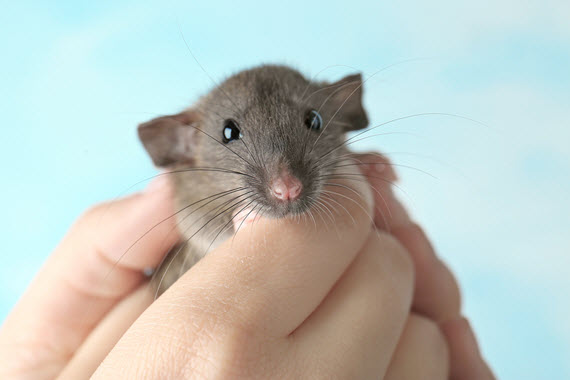Dental Tips For Mice
Maintaining the length of incisor teeth
Mice’s incisor teeth are extremely tough. Since they are consistently growing, mice usually keep them short by chewing on food and wooden toys. These activities keep the teeth in proper length and avoid overgrowth.
However, there are cases when mice find it difficult to chew due to physical impediments or sickness. Mice that were born with misalignment in the jaws and teeth may not be able to chew properly. Incisor teeth may also overgrow when the pet mouse gets sick and therefore has a low appetite for eating and playing.
Trimming incisor teeth for mice
While having overgrown incisor teeth is fairly common among mice, it isn’t something that mice owners should take lightly. If left unattended, overgrown teeth can begin to curve or grow into your pet’s gums which could lead to bigger trouble.

How do you know if your mouse’s teeth have overgrown?
A simple inspection can help you determine if your mouse’s teeth have overgrown and need trimming. Check by pulling back your mouse’s cheeks and inspect the length of their teeth. If the four large front teeth are beginning to curve, take it as a sure sign that they need to be clipped.
Ways to clip your mouse’s teeth
Ideally, pet owners should leave the teeth trimming to the highly-trained veterinarians. Veterinary staff are generally more capable of handling the tools to properly cut your pet’s teeth.
But if you’re planning to trim your pet mouse’s teeth on your own, make sure to do it with a partner. One person has to securely hold your pet while the other trims the incisor teeth one by one.
When clipping your pet’s teeth, make sure to do it with sure steady hands. Do not clip both upper or lower teeth at the same time as this may hurt the mouse. Also, make sure that their tongue is not moving around when you clip to avoid wounds and injuries.
Owners typically use feline clippers or blunt scissors to cut each tooth. However, these tools must be used with utmost care. Visiting your vets is still your best and safest option to guarantee safe teeth trimming.
An ounce of prevention is worth a pound of cure
Early detection and prevention is the best way to avoid the clippers. Make sure that your pet mouse gets the best food to keep him strong and healthy. If you suspect misalignments in the mouth of your baby mouse, take him to the veterinarian immediately. The professionals can give you advice on how to better take care of him.
For top-quality treats and food for your pet mouse, visit our store here.



Comments